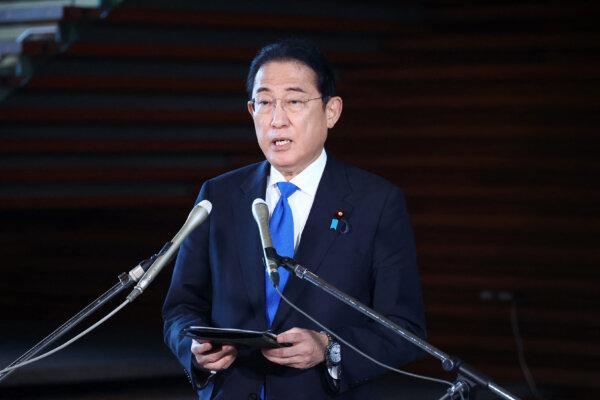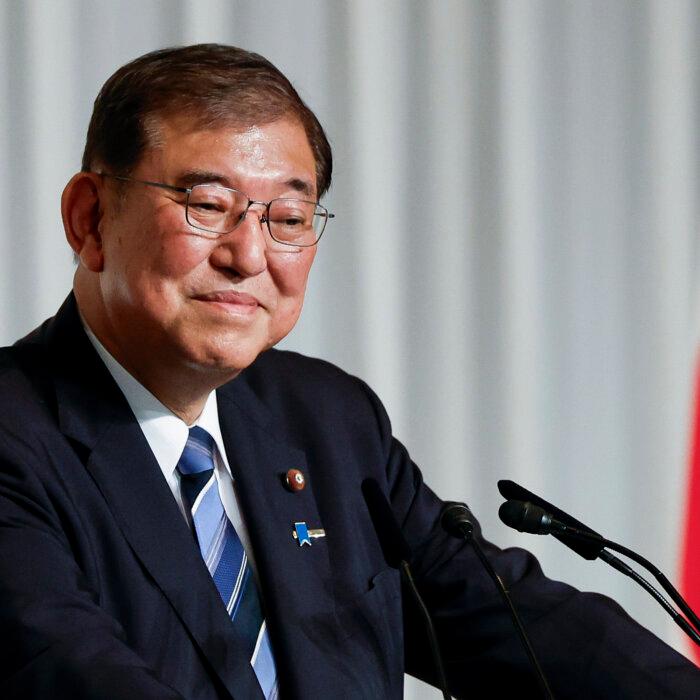Shigeru Ishiba has been formally anointed as Japan’s new prime minister, taking over from Fumio Kishida, who resigned earlier on Tuesday.
He was then formally anointed prime minister by Emperor Naruhito in a ceremony at Tokyo’s Imperial Palace.
Ishiba announced his Cabinet but omitted Sanae Takaichi, a hardline conservative and nationalist he beat by 215 votes to 194 in Friday’s leadership vote.
It was the fifth time Ishiba, who has been in parliament since 1986, had bid for the leadership of the party.
Ishiba, who is due to call a press conference later on Tuesday, has already said he intends to call a snap general election on Oct. 27.
The LDP, which had until October 2025 to call an election, currently has 259 of the 465 seats in the lower house of the Parliament, known as the Diet.
Ishiba Wants ‘Public’s Judgment’
Ishiba said, “I believe it is important to have the new administration get the public’s judgment as soon as possible.”Shortly before becoming prime minister on Tuesday, Ishiba said: “I will squarely face the people, discuss policies sincerely to gain their understanding. My government won’t walk away from challenges and will get things done.”
Ishiba, a former defense minister, has appointed Takeshi Iwaya as foreign minister and Gen Nakatani to the defense post.
He also rewarded two of his biggest supporters with key jobs—Katsunobu Kato as finance minister, and Yoshimasa Hayashi, as chief Cabinet secretary.
With Takaichi omitted, Ishiba appointed only two women—Toshiko Abe as education minister and Junko Mihara as children’s policy minister—to his 20-strong Cabinet, leading to criticism from some feminists.
The LDP has said it hopes to nearly triple the proportion of women representing it in the Diet to 30 percent in the next decade, through offering childcare and a special fund to support female candidates.
Opposition leaders have criticized Ishiba for calling the snap election, saying they only have until Oct. 9—when the Diet is dissolved—to examine and discuss in parliament his proposed policies, before the election.
Protests by opposition members of the Diet briefly delayed the start of Tuesday’s official vote to approve Ishiba as the new prime minister.
Earlier on Tuesday, Chief Cabinet Secretary Yoshimasa Hayashi said Kishida and his ministers stepped down at a Cabinet meeting.
Dogged By Scandals
The ruling party has been dogged by scandals in the last few years, including allegations about the misuse of campaign funds in January.The last election was held in Oct. 2021, a month after Kishida took over as leader of the LDP from Yoshihide Suga, who had replaced Shinzo Abe as prime minister in 2020 when Abe resigned for health reasons.

In the past, Ishiba has proposed an Asian version of NATO as a way of resisting China’s rise and called for more discussion about an equal Japan-U.S. security alliance, including joint management of U.S. bases in Japan.
He has also floated the idea that the Asian version of NATO could consider sharing control of U.S. nuclear weapons in the region as a deterrence against growing threats from China and Russia.







